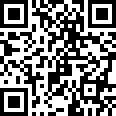
At present, there are more than 1000 kinds of digital assets in the world, and they are still growing explosively, which makes users not know how to choose. The existing wallets are roughly divided into the following categories: HEAVY WALLET (PC version), Web wallet, mobile App wallet, hardware wallet and Office Chain wallet. Some new products, such as smart wallets, need to synchronize a large amount of block chain data, which is huge, takes a long time to complete, and requires a large amount of storage space, most of the data is not related to specific users.
Heavy wallet, or computer PC wallet, currently most of the money provided by the PC wallet, powerful, but need to synchronize a large number of block chain data, need some technical support, use is very inconvenient, bring inconvenience to customers.
Web wallet: Blockchain. info, for example, is relatively easy to use, but it doesn't work well on mobile devices. App wallet. Most of them are SPV wallets, represented by Bither, Coinomi, Jaxx and Imtoken. Its experience is good, but there is still room for improvement.
Hardware wallet: proprietary equipment, safe enough, need to pay for the purchase, for many users are not willing to pay for the use of portable is inconvenient.
OffChain wallet: All kinds of account service wallets, such as the current exchange can be counted as OffChain wallets, its security and use are subject to many restrictions is its biggest problem. It also contradicts the idea of autonomous control of private keys advocated by Bitcoin.
Now the universal wallet solves many loopholes in the maintenance of capital security in the centralized digital currency exchange, which is the original intention of the "universal wallet" to persist in creating a multi-functional, decentralized, cross-chain wallet. In centralized exchanges, like banks and other traditional financial institutions, the assets of users are managed by the central server of the exchange, and the assets are only a symbolic number on the user's account. This number is often affected by the malfunction of the central system such as banks and has to bear many uncontrollable additional risks. The unique charm of block chain technology lies in that it fully guarantees that no third party except the user himself has the right to dispose of the user's personal assets, and the user does not need to bear the additional risks that the centralized system may bring.
"Universal Wallet" has built-in priority intelligent robots, which can capture real-time interest margins of various digital assets in various trading platforms, decide whether to trade, or exchange currency transactions and other arbitrage methods, so that the entrusted digital assets can be completely free from price fluctuations, and solve various drawbacks and risks of artificial arbitrage. Users can carry out bricks arbitrage with the help of the intelligent robot of "universal wallet". Users can enjoy profits without their own operation. They can even choose services such as "hedge trading mining, high-frequency quantitative trading". According to statistics,
Security can avoid the leakage of privacy data, reduce the risk of theft, and ensure security. A set of mnemonic words can create a multi-chain Wallet
In addition to these functions, "Universal Wallet" is a wallet that supports hundreds of digital currencies. Users can easily manage any digital assets with only one wallet. In the future, Universal Wallet will also open up currency transactions, and work with many application developers, businesses and users based on block chain technology to create a new digital currency payment system.
Block chains are still developing. There is still a lot of room for growth in the field of digital money and wallets. The market still needs time to test. We can earnestly look forward to the future development of "universal wallets".
The above is only the author's personal opinion, for reference only.
Author: Cash in cash

 Mr. Daiying Bao
Mr. Daiying Bao